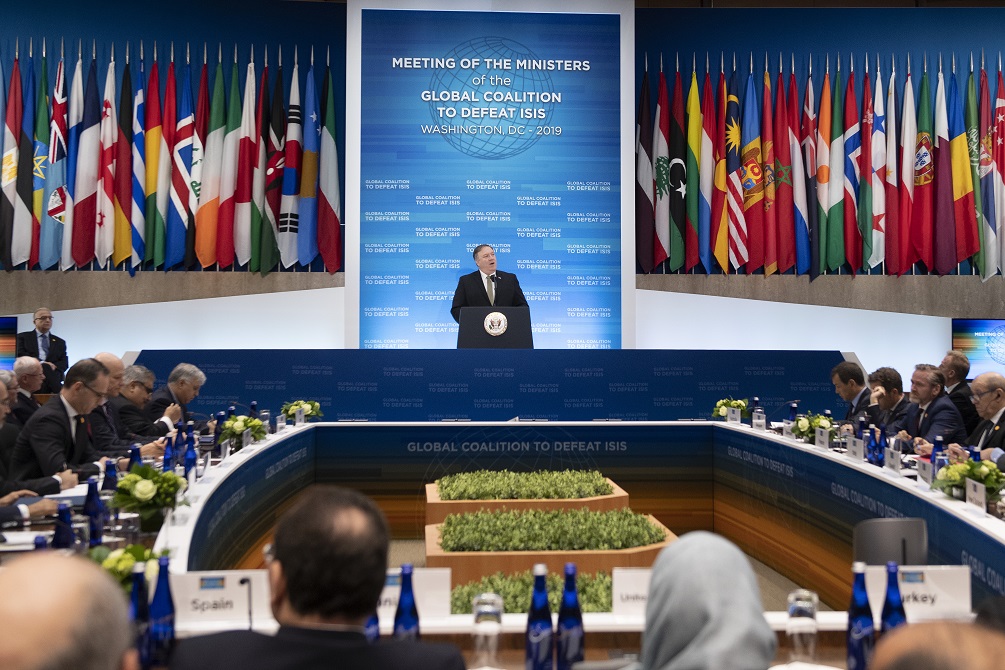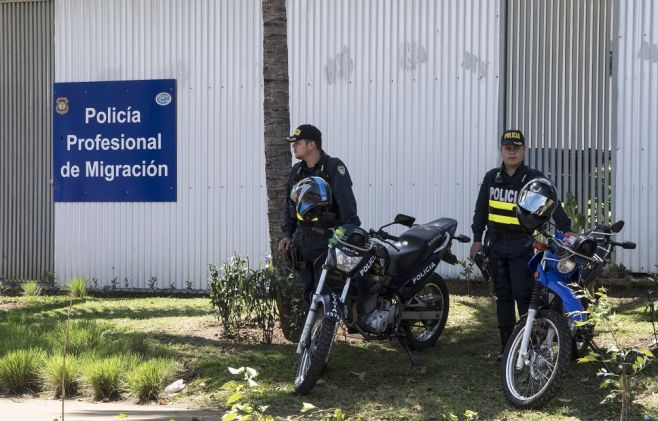The Nicaraguan Land Force detected and detained two Egyptian and two Iraqi nationals who attempted to enter Nicaraguan territory illegally through a closed border crossing in the southern municipality of Cárdenas, Rivas department, on June 25. In the preliminary investigation, authorities found that the detainees, bound for the United States, were wanted by Central American and Mexican authorities on suspicion of being part of the Islamic State group (ISIS).
The four alleged terrorists were handed over to court authorities, the Nicaraguan National Police told the press. Three of the four detainees matched alerts from the U.S. Department of Homeland Security, which had provided warnings a week prior to the arrests that the extremists were in Central America. The office of U.S. Immigration and Customs Enforcement detected the alleged terrorists, using the biometric database BITMAP, in Panama on May 12 and in Costa Rica on June 9, according to Reuters.
Mexican newspaper Reforma reported that the Federal Police responded to the alert on June 21 to help detain the terrorists, who were about to cross into Mexican territory.
“The identification and detention of alleged members of the Islamic State, a branch that is more radical than Al-Qaeda and a rival of Hezbollah, is a step forward,” Jorge Serrano, an academic at the Center for Higher National Studies in Peru, told Diálogo. “The long-term fanatical goal of this group, which spreads terror around the world, is to get weapons of mass destruction to commit a mega-attack, whether on U.S. soil or in capital cities of U.S. partner nations, including those of Latin America.”
“ISIS is one of the international terrorist groups that is most likely to perpetrate a large-scale attack in the future,” warned António Guterres, United Nations Secretary General. “They control 14,000 to 18,000 militants, 3,000 of whom are foreigners.”
Findings from the Global Terrorism in 2017 report from the University of Maryland show that the group perpetrated 1,321 terrorist attacks worldwide in that year alone.
“All the alarms are set to disrupt the activities of this bloodthirsty, radical group. The [four] detainees may be part of a greater network connected to Mexican drug cartels,” Serrano added. “These narcotrafficking organizations facilitate the entry of terrorists infiltrated through the same routes secured for the logistical distribution of drugs and weapons, through the borders toward U.S. territory.”
The Washington-based nongovernmental organization International Center for the Study of Violent Extremism said that ISIS has tried to infiltrate the United Sates in recent years to organize financial attacks and to destabilize the country. The White House press secretary told Fox News on January 7 that the United States prevented 4,000 alleged terrorists from entering U.S. territory in 2018.

“The blows dealt by the global coalition led by the United States to undermine and defeat the Islamic terrorist group dispersed many of their members, some of them into Latin American groups. After these members go back to their countries of origin with training, they are real time bombs, because they might collaborate in an attack at any time,” said Serrano. “We don’t want to rule out that the suspects might be displaced combatants, something that is alarming. Fortunately, they were detained in Nicaragua this time.”
The Foreign Fighters report from the New York-based intelligence institution Soufan Group, said that Latin America was an attractive area to recruit and train new ISIS combatants. “The region is a field full of opportunities for radical Islam,” says Oriente Medio News on its website. “It is believed that training bases are already operating in the Caribbean region.”
At the conclusion of the police investigation in Nicaragua, the suspects were handed over to Costa Rican authorities and detained in maximum security conditions. Costa Rican authorities, including those in intelligence and security, are working with international organizations in the investigation, according to Costa Rican newspaper AM Prensa.
“The best way to disrupt terrorist cells in the region is for Latin American countries to be conscious of this issue, to strengthen regional cooperation, and to increase the seamless exchange of intelligence information with countries that have more experience, technology, and resources, and that know more about radical terrorist groups,” Serrano concluded. “An example is the cooperation between Argentina, Brazil, and Paraguay with the United States, Israel, and the United Kingdom to neutralize the reentry of Islamic fundamentalist cells in the South American tri-border area.”









